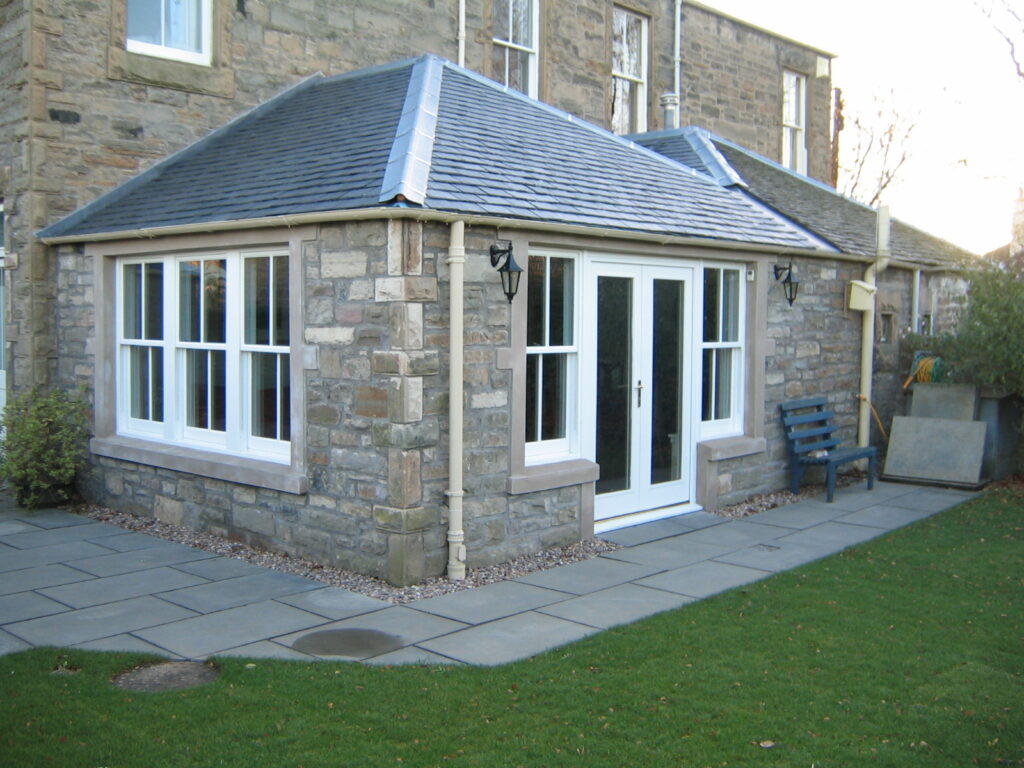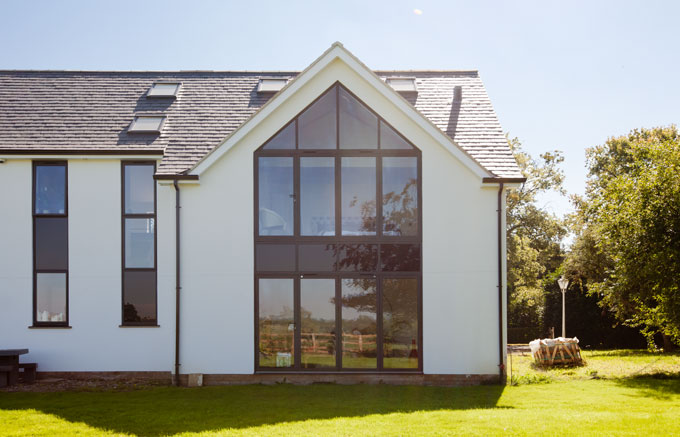House extensions
Most of us build extensions to our homes to meet changing family needs, or increase the value of our property. We are experienced in the design of extensions, both small and large and can work with you to unlock your home’s potential.
A single storey extension can be added for a kitchen, garage or additional living space to your home. Thoughtfully designed bungalow extension will not only provide additional living space, but also remain in keeping with the existing building. In some circumstances a ground floor extension can be built without planning permission, (permitted development).
A double storey extension can add one or two new bedrooms, with en-suite facilities to the side or rear of your property, over your existing garage or wherever space allows. If you’re not sure what can be done, please call and we would be only to pleased to offer advice.
We use some of the latest 3D software, which allows you to see how your new extension will fit in with your existing home. Your ideas, combined with our design flair, will produce an attractive home extension.
We produce and submit the necessary extension drawings to the local authority on your behalf. This includes the application forms for both planning permission (if required) and building regulations. (Local authority fees to be paid separately).
PDS Architectural Plans can visit you at your home, for a free no obligation consultation and feasibility study. We cover extensions in Middlesbrough, Stockton, Darlington, Redcar, Hartlepool or in the surrounding areas of Cleveland, Durham and North Yorkshire.


F.A.Q.
Most development – building, land engineering or mining operations and changes of use – requires planning permission. Some but not all minor development – including home extensions – are known as “Permitted Development” and do not need a formal application are but are subject to certain restrictions. Always check first with the Development Enquiry Centre. The demolition of dwellings, some small agricultural buildings and some special telecommunications development do not need permission but require notification.
Your application will go through five council stages:
- Booking in –Checks to make sure the correct information – location plan and drawings and fee – has been received.
- Publicity and consultation –Your application will appear on the weekly list published in libraries and on the Council website, a notice may be posted near the site and neighbours may be sent a letter seeking their views. They have 21 days to respond. Specialist comments may be obtained on highways and environmental matters – these can be vital considerations.
- Negotiations and amendments -All application sites are visited and then negotiations may take place with you or your agent to overcome any problems with your application.
- Making the decision – Senior officers make most decisions but some are made by Councillors at one of the three Plans Panels which each meet every four weeks. If your application goes to Plans Panel you may inspect the report on it five days before the meeting. You and any supporters or objectors may attend the meeting and make a short address. The Panel may decide to visit site or ask officers to negotiate further before a final decision is made.
- The decision -We will send out your Decision Notice on the day that the decision is made. It will set out the reasons for approval or refusal of the application and, if permission has been granted, any conditions with which you have to comply.
Minor changes can be made but must only be very small and must not change your permission in any significant way. You should complete the Non Material Amendments application form and submit it with the revised drawings (with the changes highlighted). A fee is payable. If you wish to make more significant changes or to amend or remove a condition, you will have to make a further planning application.
In addition to planning approval you may need other permissions such as building regulations approval. You may also have to gain other consents, for example a variation to the deeds of your property. You are advised to check any such requirements before you start work.
Full Planning Permission normally lasts three years. Outline Planning Permission only approves the principle of the development . The remaining details – known as “Reserved Matters” have to be approved before you can start any development. It normally expires after three years from the date of approval or two years after approval of reserved matters. Reserved matters must be submitted within three years.
